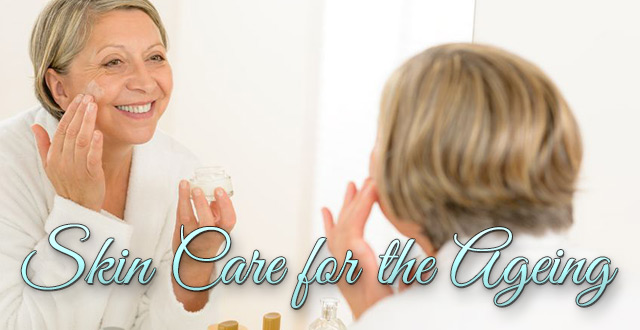Ageing can lead to changes with your skin. Many factors can play a roll in how your skin ages:
- Sun Exposure – As a result of exposure to sunlight for years, the skin loses elastin and collagen which causes it to be saggy, thinner, and have wrinkles. Age spots/liver spots can also develop from sun exposure.
- Smoking – Habits such as smoking exacerbate skin conditions because they produce free radicals which can damage cells.
- Fatty Tissue Loss – Another major cause of skin ageing is the loss of the fatty tissue between the skin and muscles which manifests as a skeletal or sunken look in the face.
- Dry Skin – The skin becomes drier with age which usually leads to dermatitis and pruritus (skin itching) which is the most common skin complaint in older patients.
- Bruising – You might also notice that your skin tends to bruise more easily than ever. This is because your skin is thinner and has lost some of the fatty layer beneath it to protect your blood vessels from injury.
These are just some of the skin issues you might encounter as you age. You might not be able to completely avoid all of them but there are several things you can do to minimize their effect and appearance on your skin.
1. Spend Limited Time in the Sun
Avoid going out in the sun, especially during the mid-hours of the day, when its rays are strongest. Don’t be fooled by cloudy skies as the rays can pass through the clouds. If you do have to go out, use broad spectrum sunscreen with an SPF number of 30 or higher. Integrate protective clothing such as hats and sunglasses into your daily outfits.
2. Eat Healthy
Eating a balanced diet is now more crucial than ever in maintaining great skin. Going beyond that, there are certain foods that can boost your skin health. Red bell peppers help to prevent wrinkles and increase blood circulation to your skin, spinach is rich in Vitamins A, C and E which are especially beneficial to your skin, and dark chocolate rich in cocoa content also promotes glowing skin.
3. Fragrance Free Regimen
Ageing skin can be very sensitive so you need to ensure that your skin care products are free from potentially irritating fragrances.
4. Mild Skin Care
Cleansing should be done twice a day with mild and gentle soaps and cleansers.
5. Moisturize
Moisturizing the entire body and face should be done regularly. This will improve the texture and appearance of the skin. It will also alleviate uncomfortable itching and dryness. Lotions and moisturizers that contain alcohol should be avoided because they’ll dry out the skin even more. Instead use oils and topical creams
6. Keep Active
Regular exercise will help to promote good circulation in your skin.
7. Pay Attention to Your Hands and Feet
Often neglected, the skin covering the hands and feet is more fragile than on that on other parts of the body making them more susceptible to loosing plumpness and elasticity at an accelerated rate. Investing in good hand and foot creams that contain plumping ingredients like hyaluronic acid can help improve the appearance.
8. Sleep Properly
Because of the loss of elasticity, sleep creases resulting from the way the head is positioned on pillows start to show up on the sides of your face. Sleeping on your back will help to improve the appearance of existing ones and prevent new ones from forming.
Getting older doesn’t mean you can’t have good skin. All that’s needed is to tweak your lifestyle to match what your skin needs now.
Photo Copyright: limonzest / 123RF Stock Photo

